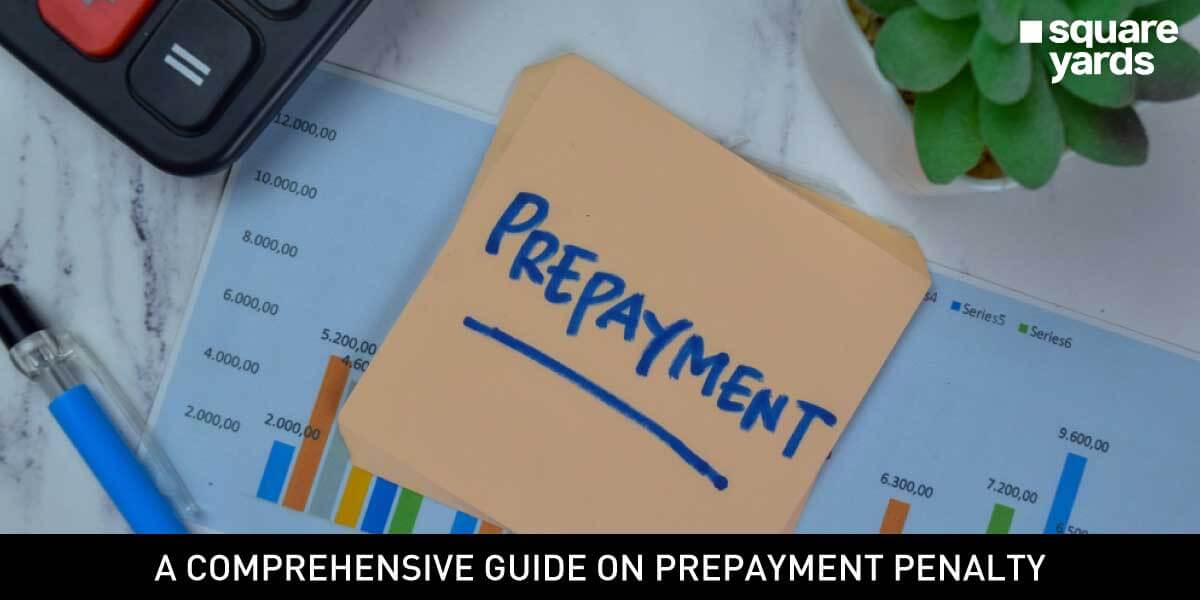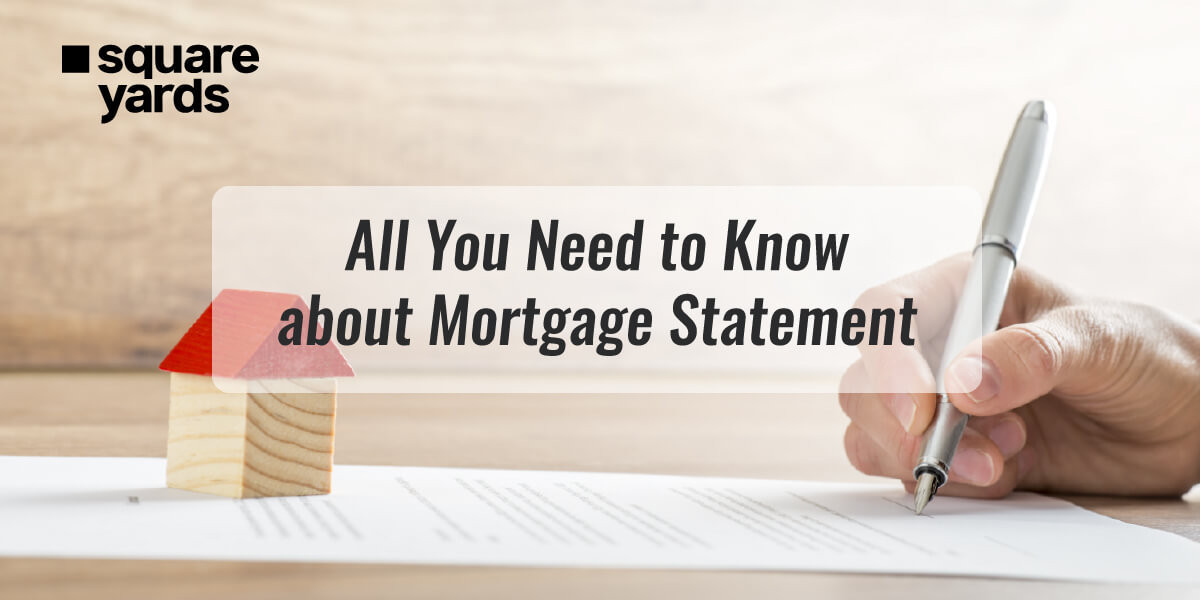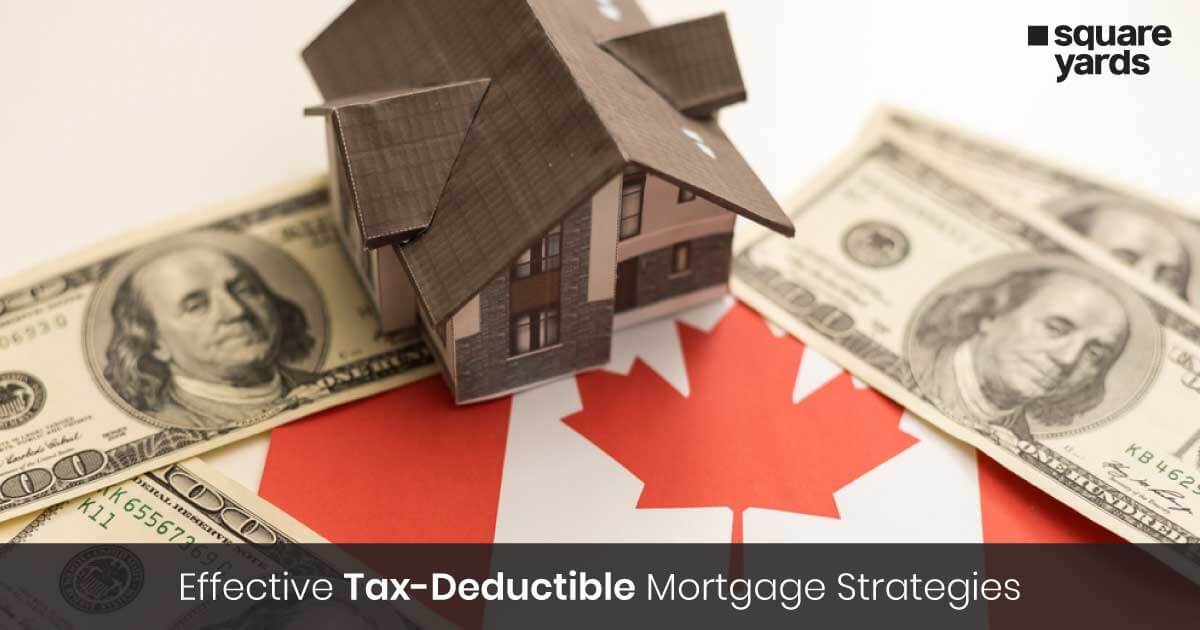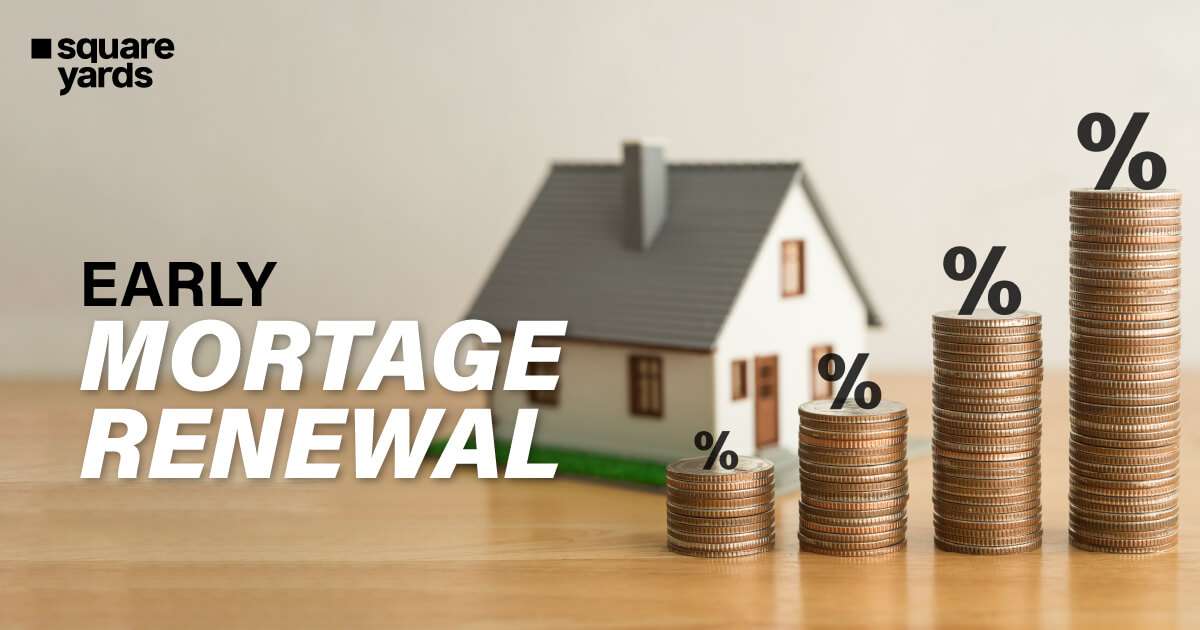Nowadays, when housing prices are uncertain due to the current market conditions, it has become common for people to look for ways to get rid of their mortgage as soon as possible. While paying the mortgage before the pre-decided term might seem like a profitable option, it is important to note that in such scenarios, you might face a mortgage prepayment penalty. In case you are wondering what this means and how to calculate it, you can read this blog to get the answers to such questions. In the end, we’ve also provided the mortgage prepayment calculator to help you determine the exact estimated figure.
Mortgage Prepayment Penalty: Definition
When you pay off your mortgage earlier than the pre-decided term, a fee is levied on the borrowers in case they pay off the mortgage before the agreed-upon term. The lenders charge this fee to compensate for the loss in interest. Let us look at the scenarios in which you might be charged with the prepayment penalty:
-
- If you (the borrower) pay more than the agreed-upon amount for the mortgage,.
- In case you break the mortgage contract.
- If you transfer the mortgage to a different lender prior to the conclusion of your term,
- If you pay back the total mortgage prior to the conclusion of your term, including when you sell your house,
It is important to note that the lender might also refer to the prepayment penalty as a breakage cost/ prepayment charge.
Instances When You’re Supposed to Pay a Mortgage Prepayment Penalty
You might ask, “When do you pay a mortgage prepayment penalty?” Well, your lender might ask you to pay a mortgage prepayment in two cases: either when you have paid more than your yearly repayment limit or when you pay your complete mortgage before the agreed-upon date. For example, this might occur when you refinance/ pay a substantial lump sum payment. In open mortgages, you can exceed the payment and pay off the remaining amount at any period of the mortgage term. However, in this blog, we’ll only talk about the penalties applicable to closed mortgages.
What Happens When You Exceed the Annual Prepayment Limits?

You can prepay your mortgage to the extent determined by the lender in most closed mortgages. This might consist of lump-sum payments towards your principal/yearly increases to your regular mortgage payment. Usually, the prepayments would be a predetermined percentage of your original loan amount. However, if you exceed these limits, say by a 10%-15% increase, you might be levied a mortgage prepayment penalty.
If You Pay Off Your Mortgage Before Your Term Ends?
In today’s economy, you might need to pay off your mortgage completely before the term expires. For instance, you might face such a situation if you want to sell your home. In such cases, you will face a prepayment penalty if you have a closed mortgage. This is because the amount being paid back is more than if you were paying more than your yearly prepayment limits. It is important to calculate all the other options in such cases, as the penalty might be higher. Remember, you can always use the mortgage prepayment calculator to determine the exact penalty amount.
A Look at the Mortgage Prepayment Penalties

There are a few variants of prepayment penalties. These are explained below.
-
Variable-Rate Mortgages
In closed, variable-rate mortgages, the mortgage prepayment penalty is usually equal to the interest on the prepaid amount for the last 3 months. Certain lenders might determine the penalty on your mortgage rate. However, some lenders might base it on their prime rate. For instance, if you have a 6% variable-rate mortgage and exceed your yearly prepayment limit by $12,000, your penalty would be lower. However, if you pay off your entire mortgage way before the term ends, you will face a higher penalty.
-
Fixed-Rate Mortgages
If you have a closed, fixed-rate mortgage, your mortgage prepayment penalty will be equal to interest on the prepaid amount for the last 3 months. Certain lenders calculate the prepayment penalty with the help of their interest rate differential (IRD).
Let us see how the lenders calculate IRD when you completely pay off your mortgage:
-
- The lender finds a mortgage product with a term length just like your remaining mortgage period. If you have a six-year, fixed-rate mortgage with four years left, for example, your lender will call upon its current offerings of four-year, fixed-rate mortgages.
- To calculate the IRD rate, the mortgage rate is deducted from the current posted rate for the applicable product. If your lender’s 4-year, fixed mortgage rate is 6.5% and your original rate was 4.5%, the IRD rate will be 2%.
- Your remaining balance is then multiplied by the IRD rate and divided by 12 to calculate the monthly amount owed by you. If you have $300,000 left on your mortgage, the amount owed would be $500.
- The number of months remaining in your term is then multiplied by this sum. In this case, it will be 48 months. Thus, you will have to pay a penalty of $24,000.
If you pay more than the yearly prepayment limit on a closed, fixed-rate mortgage, the penalty would not be as high as if you had completely paid it off. This is because you would be prepaying a smaller amount, and your lender might only levy you 3 months’ interest.
How to Avoid a Mortgage Prepayment Penalty?
Now that you know about the repercussions of a prepayment penalty, you’d want to look at some methods to avoid it. Well, don’t worry, we’ve got you covered. Listed below are some ways that can help you avoid a mortgage prepayment penalty:
-
- You should consult your prepayment limits. It is advised to check the contract before you put a large tax refund towards your mortgage as an additional payment/ or inheritance. You are advised to ensure that you don’t exceed the prepayment limits.
- Obtaining an open mortgage is yet another way to avoid a mortgage prepayment penalty. You can apply for the open mortgage to get rid of the mortgage as soon as possible. However, it is important to note that the interest rates on open mortgages are relatively higher.
- You can also port your mortgage by taking the existing mortgage contract and applying it to your new home. This means that you can avoid breaking the mortgage contract and, hence, any penalty.
- It is also advised to fully use your prepayment privileges. You can do this by making a lump sum payment before breaking your mortgage contract.
Summing Up
There are scenarios where you have no other option than to pay off your mortgage completely before the term expires. In such cases, you are levied a mortgage prepayment penalty. Since most people are unaware of this, they end up paying a higher interest rate. Therefore, having a better understanding of mortgage prepayment penalties and closed and open mortgages is necessary. This way, you can reduce the amount to be paid as a penalty or even avoid it. You can also use this mortgage prepayment calculator to get an exact estimated figure.
You May Also Read
|
Know Letter of Employment For Mortgage |
|
|
Guide To Refinancing Mortgage Canada |
|
|
All About Mortgage Affordability Calculator |
|
|
What is Mortgage Broker |
Frequently Asked Questions (FAQs)
The penalty for paying off the mortgage early is usually equal to 3 months’ interest on what you owe/ IRD. Out of these two, the higher amount is levied as the penalty.
Yes, you can certainly get out of a 5-year fixed mortgage. However, it is important to calculate whether it will be a profitable decision after calculating the mortgage prepayment penalty charges.
In Canada, as per the rule against penalty clauses, the party levied with a penalty should not be penalised. Rather, they should be asked to pay the penalty as compensation to the innocent party.
Yes, if you can persuade the lender, you can negotiate a reduction in the mortgage penalties. However, in most cases, you would still have to pay a certain amount as the mortgage prepayment penalty. How much is the penalty for paying off the mortgage early?
Can you get out of a 5-year fixed mortgage?
What is the rule against penalty clauses?
Are mortgage penalties negotiable?











